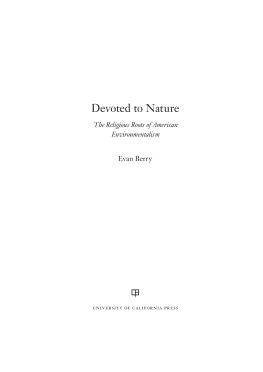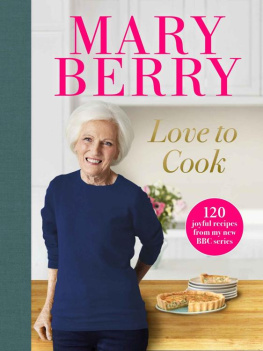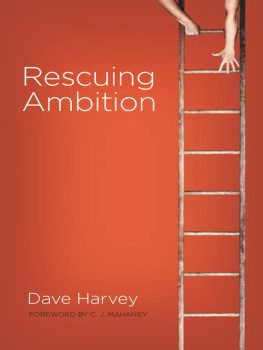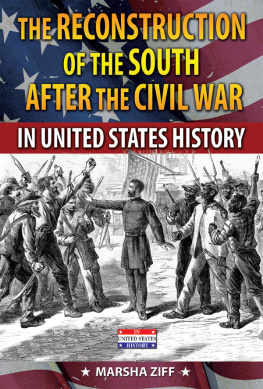ALL THAT MAKES A MAN
ALL THAT MAKES A MAN

Love and Ambition in the Civil War South
STEPHEN W. BERRY II


Oxford New York
Auckland Bangkok Buenos Aires Cape Town Chennai
Dar es Salaam Delhi Hong Kong Istanbul Karachi Kolkata
Kuala Lumpur Madrid Melbourne Mexico City Mumbai Nairobi
So Paulo Shanghai Taipei Tokyo Toronto
Copyright 2003 by Stephen W. Berry II
Published by Oxford University Press, Inc.
198 Madison Avenue, New York, New York 10016
www.oup.com
Oxford is a registered trademark of Oxford University Press
All rights reserved. No part of this publication may be reproduced,
stored in a retrieval system, or transmitted, in any form or by any means,
electronic, mechanical, photocopying, recording, or otherwise,
without the prior permission of Oxford University Press.
Library of Congress Cataloging-in-Publication Data
Berry, Stephen William.
All that makes a man : love and ambition
in the Civil War South / Stephen W. Berry II.
p. cm Includes bibliographical references and index.
ISBN-0-19-514567-4
1. United StatesHistoryCivil War, 18611865Social aspects.
2. United StatesHistoryCivil War, 18611865Psychological aspects.
3. Confederate States of AmericaSocial conditions.
4. MenConfederate States of AmericaSocial conditions.
5. MenConfederate States of AmericaPsychology.
6. Sex roleConfederate States of America.
7. Man-woman relationshipsConfederate States of America.
8. AmbitionHistory19th century.
9. SoldiersConfederate States of AmericaSocial conditions.
10. SoldiersConfederate States of AmericaPsychology. I. Title.
E468.9.B37 2002
973.71dc21 2002070048
1 3 5 7 9 8 6 4 2
Printed in the United States of America
on acid-free paper
I [know] of no more subtle master under heaven
Than is the maiden passion for a maid,
Not only to keep down the base in man,
But teach high thought, and amiable words
And courtliness, and the desire of fame,
And love of truth, and all that makes a man.
Alfred Lord Tennyson, Idylls of the King
CONTENTS
ILLUSTRATIONS
ACKNOWLEDGMENTS
There is a land of the living and a
land of the dead and the bridge is love.
R eaders with little stomach for gushing words of praise and thanks should bypass this section altogether. First books are like first children, and I mean to put a cigar in every mouth.
All That Makes a Man began as a dissertation at the University of North Carolina, Chapel Hill. To my adviser, William Barney, I owe an unrepayable debt. His archival leads and historical insights have contributed significantly to this work, and I proudly call myself his student. The other members of my committeePeter Coclanis, Peter Filene, John Kasson, and Joel Williamsonread the dissertation closely and provided thoughtful comments that both saved me from little embarrassments and sent me in new directions. In long conversations that ran the intellectual gamut, David Moltke-Hansen pushed me to think broadly and deeply. Throughout the process, I have been sustained by Peter Walkers contagious love of words and the ease that came when he promised us that as writers and as people we would all fail, for man would always fail and could only hope to do it elegantly.
While I was at Chapel Hill, three institutions put up with me for long stretches. At the Center for the Study of the American South, Barb Call, Tony Young, and Joe Mosnier always made it easier to come to work. At the Institute for Research in Social Science, Jon Crabtree, Christine Cleveland, and Angell Beza gave both advice and encouragement. At the Southern Historical Collection, where I did the bulk of my research, I benefited from the unstinting generosity of John White, a man for whom, I am convinced, God has earmarked a particularly fluffy cloud. I also feel thankful for Chapel Hill itselfthe little slice of heaven on which a voracious multitude daily feedsfor the red tape, fees and fines and hellish parking, bars, classrooms, and coffeehouses, where I finally figured out what I wanted to do with my life.
At the University of North Carolina at Pembroke I have found a new home, and my colleaguesRobert Brown, Micky Connelly, Bruce DeHart, Kathleen Hilton, Julie Smith, and Mark Thompsonhave made it a happy one. All That Makes a Man has found its home at Oxford, where Susan Ferber has been a pillar of aid, understanding, and sharp criticism. I feel very fortunate to have her as my editor.
Friends have contributed no less directly to this work, offering encouragement, advice, and support. Gary Williams, my undergraduate adviser, instilled in me affections for history and the lilt of language. At UNC, Robert Tinkler had my back through too many years of graduate school, and Gavin Campbells sharp criticism about my work and dry wit about this profession leavened many a grim moment. Over countless three-egg breakfasts, Terry Mehlman and Stacey Sewall listened as I presented my monthly (lack of) progress reports, and their company offered a welcome respite from the neuroses of writing. Stephen Rosbough has been everything one looks for in a friend. I have spent so many hours eating at his table, sleeping on his couch, and conversing from his deck chairs that I really ought to have paid rent. Michael McFalls, Sean Malloy, and I have walked from boyhood to manhood together, and I wouldnt know myself without them.
My family has been the mainstay of my life. Margaret and Clay Riley remind me every time I see them why family is the most magical word in the language. Patrick Berry has for time out of mind made our home a happy and productive one. Undoubtedly were coming up on our millionth cup of coffee together, and I hope therell be a million more. My parents did everything rightthey raised a happy familyand this book is dedicated to them.
ALL THAT MAKES A MAN
INTRODUCTION
I n 1857, North Carolinian Albert Luria fell in love with his cousin Eliza. He was fifteen; she may have been younger still. All questions of age were brushed aside, however. Alberts feelings were too irrevocably fixed on the girl ever to centre on anyone else, and so he proposed. Unfortunately, Elizas parents disapproved the match. The couple was too young, they said, and Alberts older brother had already married Elizas older sister. Cousinate marriages were common in the Old South and generally free from stigma, but too much inbreeding could threaten a familys respectability. Dutifully, Eliza declined Alberts proposal of marriage and agreed not to correspond with him. Usually, such a decision would bring an end to the written record, and the couple would dissolve back into the unknowable past. Albert and Eliza both kept diaries, however. Denied the privilege of writing to each other they wrote frequently of each other, and thus their story can be sketched to its conclusion.
In 18591860, Albert Luria attended military school in Hillsboro, North Carolina. The following year he joined the Twenty-Third North Carolina Infantry, hoping to figure among [the] mounted men and dashing youths swelling the chorus of the Confederacy. Despite
Next page















